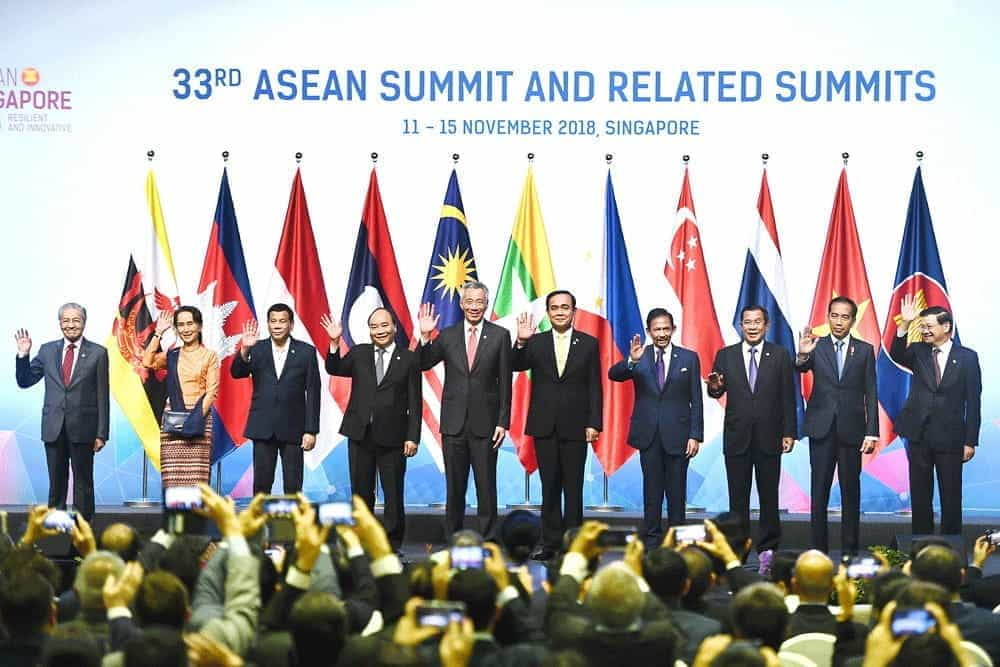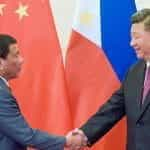China Asks Philippines to Help with Problem Gambling
In a bid to tackle the rising rates of online gambling in the country, China has appealed to two ASEAN allies to halt all online gaming operations. The requests come after a spokesperson for the foreign ministry in China described problem gambling as “the most dangerous tumor in modern society.”
China requested both Cambodia and the Philippines shut down their online casinos, noting their popularity with Chinese residents. While Cambodia was quick to honor the request, the Philippines is currently leading an investigation into the scope of its online gaming industry and what its closure would cost.
Among concerns that China’s citizens are gambling illegally in neighboring countries, China has also stated that cross-border gambling has become a method for foreign criminals to embezzle and launder funds and recruit Chinese workers.
As the notoriously expensive Macau remains the only place in China that locals can legally gamble, many Chinese punters are being lured to cheaper foreign online options. With some overseas operators allowing bets as low as $1.40, lower-income earning Chinese players have been lured into the vast, unregulated online casinos hosted outside mainland China.
Despite China’s political sway in the South-East Asian region, the Philippines has shown some resistance to the request. Whilst still acknowledging the issue, the state-run Philippino Amusement and Gaming Corporation (PAGCOR), the body in charge of issuing licenses to the offshore gaming operators in question, has stated that the online casinos are targeted at all countries, not just China.
The Philippines Considers The Economic Impact of Casino Closure
According to Benjamin Diokno, the chairperson of the Philippine’s Anti-Money Laundering Council, the state is beginning to investigate the economic impact of halting online gambling operations. Speaking at an economic forum, Diokno revealed that he had ordered his agency and the central bank’s financial stability team to study if China’s claims that offshore casinos are as harmful as China claims.
The offshore gaming operators, or POGOs, exploded in popularity in 2016 after President Duterte reversed anti-online gambling policies and put PAGCOR in charge of processing all offshore online gaming licenses. With locals barred from participating in the gameplay at these POGOs, Mandarin-speaking Chinese nationals began to apply for online dealing jobs in droves. According to the Phillipine’s Amusement and Gaming Corporation, there are currently 60 licensed POGOs in the Philippines. Critics, however, state that this number is a gross misrepresentation of the true figures and that the number is actually far higher.
Since January 2017, revenue from these operators has grown from $113 million to over $150 million, an increase that has been linked to the influx of Chinese players. While the Philippine’s doesn’t deny that many of its players are Chinese, it isn’t fully convinced that most of the players are based in China, therefore making the activities legal.
”“I think, in their culture, they like gambling. But it’s not automatic that if the players are Chinese, they are all from China. The players are mostly Chinese, but we are not sure if in fact, they are all from China,””– Victor Padilla, Senior Manager of Policy and Offshore Gaming Licensing, PAGCOR
In a bid to prove that it is taking China’s concerns seriously, PAGCOR has agreed to stop issuing licenses to new operators while the investigation is underway. Lawmakers have also voiced intentions to introduce more restrictions on Chinese visitors to curb the chances of them being recruited into illegal casino work.
Meanwhile, the other nations in the ASEAN region have agreed to China’s requests.
What is ASEAN?

ASEAN state leaders pose at the ASEAN 2018 summit © Jakarta Post
The Association of Southeast Asian Nations (ASEAN) was established in 1967 by Indonesia, Malaysia, the Philippines, Singapore, and Thailand. The aims and purposes of the association were to accelerate economic growth, social progress and cultural development in the region, as well as promote regional peace, collaboration, and support.
Over the course of its history, five other nations in the Southeast Asian region have joined ASEAN. It has been credited by some of one of the world’s most powerful organizations and plays an important role in diplomatic, political and economic decisions not only in the region but internationally.
In 2002, an ASEAN-China Free Trade agreement was signed into effect, strengthening economic and political ties between the nations and China. Between 2003 and 2008, ASEAN-China trade grew from $59.6 billion to $192.5 billion. Strong relations between the nations have resulted in major economic growth for many of the ASEAN states due to China’s growth into a global economic superpower.
This reliance on China has led some to believe that ASEAN has become more pliable to China’s wishes. After China’s request to shut down online casinos, Cambodia, which relies heavily on China for aid and investment, announced plans to ban online gambling by August 2020, citing its use by foreign criminals as an effort to thwart the country’s stability.
Additionally, both Vietnam and Malaysia have recently cracked down on Chinese nationals running or participating in gambling operating within their borders. Over 380 Chinese nationals were detained in Vietnam under suspicion of running an illegal $435 million gambling ring, while 97 Chinese nationals were arrested in Malaysia for running a syndicate that targeted Chinese players in mainland China.
China’s concerns about the lightly regulate ASEAN casino networks have been echoed in a report by the United Nations Office on Drugs and Crime. The report highlights the casinos as being used to illegally launder money as well as facilitate human trafficking.



